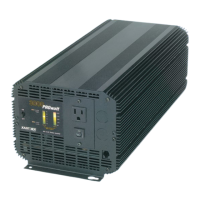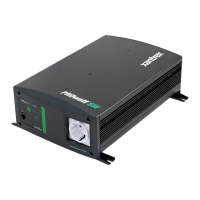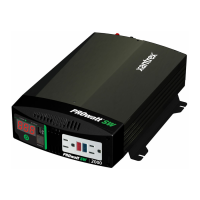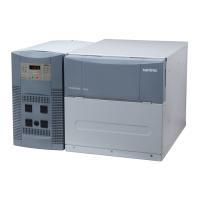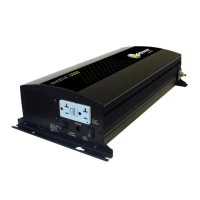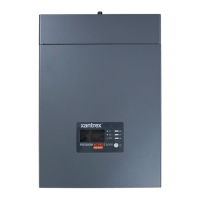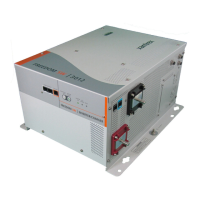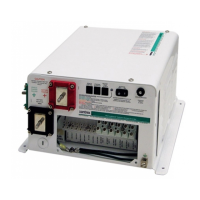PROSINE 2.0 INVERTER•CHARGER USER’S MANUAL
xvi
445-0089-01-01
9. The inverter•charger must be provided with an equipment-grounding
conductor connected to the AC input ground terminal. Grounding and all
other wiring must comply with local codes and ordinances.
10. For marine applications in the United States, external connections to the
inverter•charger shall comply with the United States Coast Guard
Electrical Regulations (33CFR183, Sub part 1).
Explosive Gas Precautions
1. Working in the vicinity of lead-acid batteries is dangerous. Batteries
generate explosive gases during normal operation. Therefore you must
read this manual and follow the instructions exactly before installing or
using your inverter•charger.
2. This equipment contains components which tend to produce arcs or
sparks. To prevent fire or explosion, do not install it in compartments
containing batteries or flammable materials or in locations that require
ignition-protected equipment. This includes any space containing
gasoline-powered machinery, fuel tanks, joints, fittings, or other
connections between components of the fuel system.
3. To reduce the risk of battery explosion, follow these instructions and
those published by the battery manufacturer and the manufacturer of the
equipment in which the battery is installed.
Precautions When Working With Batteries
1. Someone should be within range of your voice or close enough to come to
your aid when you work near a lead-acid battery.
2. Have plenty of fresh water and soap nearby in case battery acid contacts
skin, clothing, or eyes.
3. Wear complete eye protection and clothing protection. Avoid touching
your eyes while working near batteries.
4. If battery acid contacts skin or clothing, wash immediately with soap and
water. If acid enters your eye, immediately flood it with cold running
water for at least twenty minutes and get medical attention immediately.
5. Keep a supply of baking soda on hand in the area of the batteries. Baking
soda neutralizes lead-acid battery electrolyte.
6. NEVER smoke or allow a spark or flame in the vicinity of the engine or
batteries.
7. Use extra caution to reduce the risk of dropping a metal tool on the
battery. It could spark or short circuit the battery or other electrical parts
and could cause an explosion.
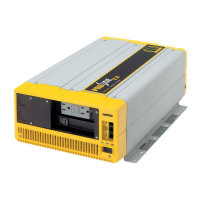
